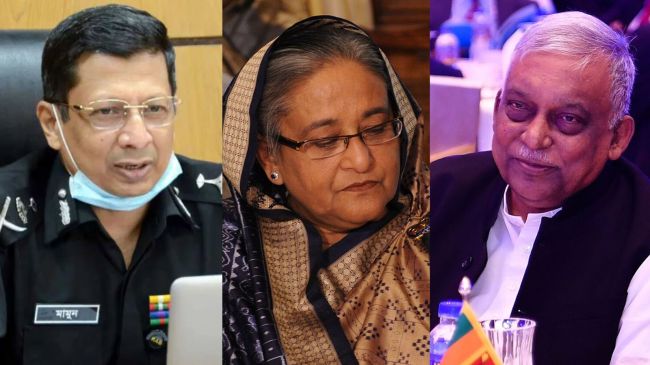Opinion With former Bangladesh PM Sheikh Hasina’s ICT conviction, a diplomatic test lies ahead of India
New geopolitical alignments, rising Islamist influence in Bangladesh, and a contested extradition request threaten years of bilateral cooperation between New Delhi and Dhaka
 The trial appears driven more by political vendetta than by genuine concern for justice; thus, it remains India’s legal prerogative to reject the extradition request (Wikimedia commons)
The trial appears driven more by political vendetta than by genuine concern for justice; thus, it remains India’s legal prerogative to reject the extradition request (Wikimedia commons) On November 17, Bangladesh’s International Crimes Tribunal (ICT) sentenced former Prime Minister Sheikh Hasina to death for her alleged role in the violent crackdown on student protests in Dhaka in 2024. It pronounced her guilty of “crimes against humanity” during the July Revolution. This has ignited a new phase of instability in Bangladesh. The ICT, revived in 2009 by Hasina herself, has become a Frankenstein’s monster for her. Now, living in exile in India, she has pleaded “not guilty” to the charges against her and has accused the Muhammad Yunus-led caretaker government of a political witch-hunt. The verdict could be the final nail in the coffin for the already cornered Awami League. It will also mount diplomatic pressure on India to extradite Hasina after this conviction. Though Dhaka has already submitted a formal request for extradition, India has not yet issued a formal response and has only acknowledged receipt. India will now have to re-examine every pillar of its bilateral relationship with Bangladesh while considering domestic political pressures and regional geopolitics.
The crisis in Bangladesh is not a purely legal dilemma. Rather, it is a strategic question tied to India’s enduring political objectives of security, economic development, and political stability. The challenge for India is structural: It threatens the very foundations of cooperation painstakingly built over the years. The treaties and agreements, which once symbolised shared trust, now need re-interpretation under altered political circumstances. For example, while Dhaka has already requested extradition under the 2013 Extradition Treaty, India is neither mandated nor likely to comply.
The current turbulence in Bangladesh is also expected to negatively impact bilateral relations. For years, the Hasina administration safeguarded India’s internal security interests, cracking down on anti-India groups and cooperating with Indian agencies in the Northeast. She also kept rising Islamic fundamentalism in check by co-opting radical-conservative forces like Hefazat-e-Islam and prosecuting collaborators, largely from Jamaat-e-Islami.
Additionally, the Hasina government’s foreign policy posture vis-à-vis China and the US exercised balance. She cultivated ties with China, but did not compromise on India’s interests. Similarly, she dealt with Washington while always keeping New Delhi in confidence. The Yunus-led interim government, however, is shifting course — openly courting China, cultivating a Pakistan nexus, and positioning Bangladesh as a “guardian of the ocean”. Cross-border migration into Tripura and Meghalaya has increased, and symbolic gestures — such as Yunus gifting Pakistan’s military chief a book depicting India’s Northeast as part of “Greater Bangladesh” — have raised alarm. With Jamaat-e-Islami re-emerging as a major political actor and Hefazat gaining influence, India has lost significant politico-strategic depth in Bangladesh.
Second, India’s major foreign-policy initiatives, including the Act East Policy and efforts to unlock the economic potential of the Northeast, now face significant constraints, as a cooperative government in Dhaka is essential to their success. Under Hasina, India and Bangladesh were aligned on initiatives such as the Bangladesh, Bhutan, India, Nepal (BBIN) Motor Vehicles Agreement (BBIN-MVA), Bay of Bengal Initiative for Multi-Sectoral Technical and Economic Cooperation (BIMSTEC), trade and transit agreements, and cross-border rail, road and other connectivity projects. It served both India and Bangladesh well, as India could better connect the Northeast with the mainland, and Bangladesh could directly export to Nepal and Bhutan using the transhipment facility provided by India.
The Hasina administration also facilitated Indian investments by signing a bilateral investment treaty in 2009, enabling Indian companies to enter sectors such as energy, infrastructure, and pharmaceuticals. Much of this progress may now be reversed. In such a volatile political environment, durable solutions to issues like energy cooperation, river-water sharing, and transit arrangements are unlikely.
With the Awami League barred from contesting the elections in February 2026, political instability will benefit forces inimical to India’s interests. Bangladesh’s liberal-secular constituency, historically supportive of friendly ties with India, is shrinking, while Islamist groups are gaining ground. Many have accused the interim government of being complicit in the persecution of minorities.
Finally, on the question of extradition, India must take a pragmatic stance. The decision should rest on the merits of the case, especially as the charges were brought by an unelected interim government rather than a legitimate, representative authority. The trial appears driven more by political vendetta than by genuine concern for justice; thus, it remains India’s legal prerogative to reject the extradition request. India should continue to support the swift holding of free and fair elections in Bangladesh, enabling its people to choose a legitimate government and end the political instability that has persisted since August 2024.
The writer is professor, School of International Studies, JNU






